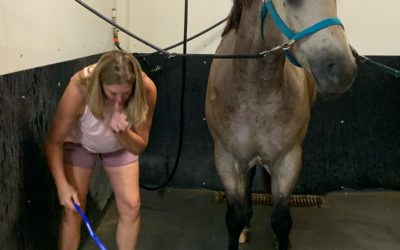Extraverted Thinking (TE)
ESTJ – ENTJ
For example:
When we turn off our gut, or emotional reaction, to make an objective decision or create procedures and policies, we are exercising Te function.
What to know about those that are hard-wired for Extraverted Thinking
- Operationalizes
- Applies rules and policies logically
- Sequences and organizes actions
- Seeks to regulate or control with logic
- Often organizes people and resources to accomplish goals logically and efficiently, and in accordance with clearly defined parameters
- Tends to initiate projects and delegate roles and responsibilities, creating a cohesive team
- May assume a can-do attitude that makes difficult tasks seem feasible.
- Can moderate the discussion to achieve maximum efficiency and arrive at implementation.
- Tends to value rules and disallow exceptions.
- If inflated, may be unable to relax, feeling the need to constantly supervise.
- If inflated, may avoid holidays and solitude.
- Dislike disorder and inefficiency
What to know about training or educating those that are Extraverted Thinking
- Analyze & evaluate what they see, read, & hear
- Prefer logical presentation of information
- Want clear and logical evidence
- Check the credibility of information sources
- Want clear criteria for evaluation
- Look for flaws and inconsistencies
- Be decisive and like closure
- Persevere and work efficiently
- Like well-defined rules or principles
- Focus on time and task management
- Complete tasks and achieve goals
Famous TE Types
- Napoleon Bonaparte (ENTJ) Emperor of France
- Julius Caesar (ENTJ) Dictator of Rome
- Nancy Pelosi (ENTJ) US Speaker of the House (Democrat)
- Jack Welch (ENTJ) CEO of General Electric
- Dr. Phil (ESTJ) Psychologist and talk show host
- Martha Stewart (ESTJ) Business magnate
- Uma Thurman (ESTJ) Actress
- Judge Judy (ESTJ) Television judge and author

MICHELE BURCH REID, MS FOUNDER OF LCI
More From Michele
Eight Cognitive Functions of the MBTI
The 16 MBTI types can be simplified into 8 Cognitive Functions Important to remember: Everyone uses all 8 functions Our type determines our ability to use each function 2 will serve as our strengths 2 will serve as our weakness or blind spots The remaining 4 are our...
Importance of Non-Verbal Communication
The other day while I was grooming my horse, it hit me how important non-verbal communication is. In the words of Keith Whitley, There is so much that is being said “when you say nothing at all”. There is so much trust, loyalty, vulnerability, and even communication...
Tips For The “C” Style Interaction, The DiSC Personality Type Assessment
How the high "C" works with . . . High "D" During stressful times and conflict the High "C" might: View the High "D” as argumentative, dictatorial, arrogant, domineering, nervous, pushy & impetuous Become defensive Tension: High “C” focuses on detail; High...





